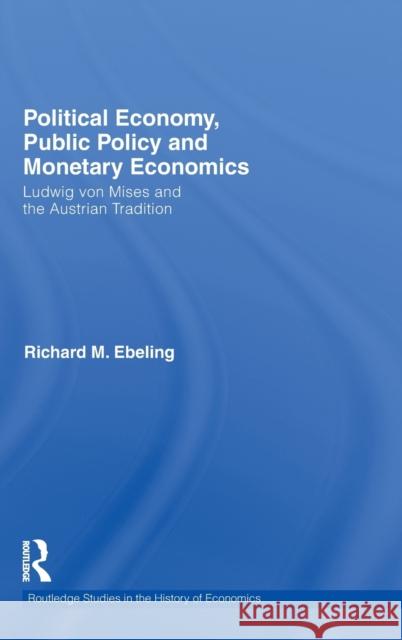Political Economy, Public Policy and Monetary Economics: Ludwig von Mises and the Austrian Tradition » książka
Political Economy, Public Policy and Monetary Economics: Ludwig von Mises and the Austrian Tradition
ISBN-13: 9780415779517 / Angielski / Twarda / 2010 / 384 str.
Political Economy, Public Policy and Monetary Economics: Ludwig von Mises and the Austrian Tradition
ISBN-13: 9780415779517 / Angielski / Twarda / 2010 / 384 str.
(netto: 742,43 VAT: 5%)
Najniższa cena z 30 dni: 730,42 zł
ok. 16-18 dni roboczych.
Darmowa dostawa!
As a defender of free-market liberalism and a leading opponent of socialism, this volume places Ludwig von Mises' views on political economy, public policy and monetary economics in the historical context of his time.
Austrian economist, Ludwig von Mises, was one of the most original and controversial economists of the 20th century, both as a defender of free-market liberalism and a leading opponent of socialism and the interventionist-welfare state. He was both the grant designer of a political economy of freedom and a trenchant, detailed critic of government regulatory and monetary policies in the first half of the 20th century. This volume places his views on political economy, public policy and monetary economics in the historical context of his time, especially during his many years as a senior economic analyst for the Vienna chamber of commerce before the First World War and then in the interwar period of the 1920s and 1930s.
After an overview of Austrian Economics and Mises’ system of economic liberalism, the chapters explore the cultural currents of anti-Semitism in Austria before and after the First World War that Mises confronted as an Austrian Jew; his analysis of Austria-Hungary’s establishment of a gold standard; Mises’ multi-sided activities in the years after the World War I in stemming a hyperinflation, opposing government fiscal mismanagement, and resisting misguided policies during the Great Depression; and his analysis of how Europe plunged into World War II and the policies to restore freedom and prosperity to the continent, and in the context of Mises’ general social philosophy of freedom. Other chapters discuss the confrontation between the Austrian Economists and the Keynesians over the causes and cures for the Great Depression; and the how Mises’ "Austrian" approach to money and the business cycle contrasted with both the ideas of Joseph A. Schumpeter and the Swedish Economists of the interwar period. The final chapter explains Mises’ and the Austrian conception of expectations and expectations-formation for understanding the market process.











